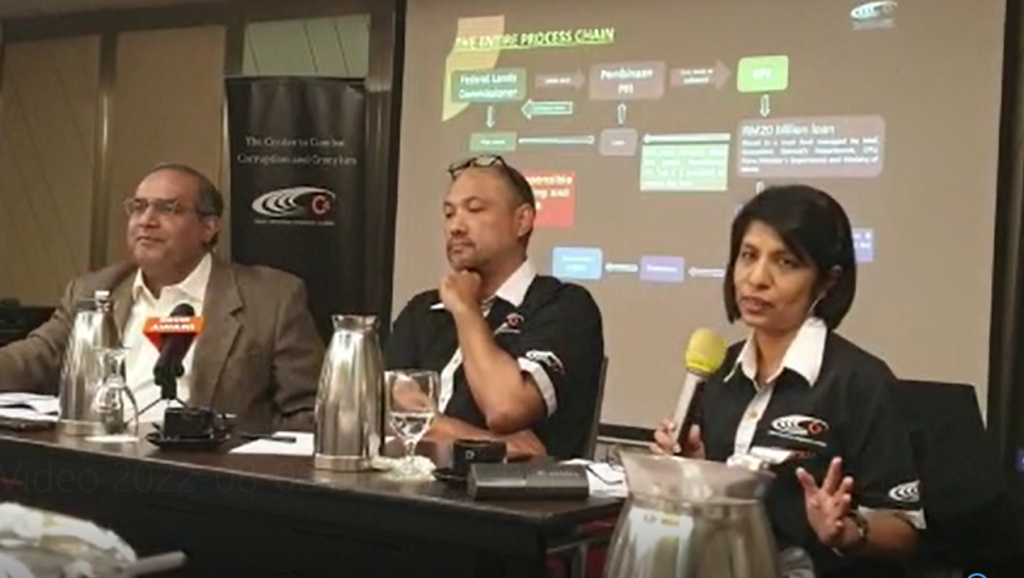
KUALA LUMPUR, Sept 2 – Commending the judiciary over the recent bold decisions to convict former prime minister Datuk Seri Najib Razak and his wife Rosmah Mansor on corruption charges, the Center to Combat Corruption and Cronyism (C4 Center) today called for all corruption cases to be fast-tracked and deliberated in trial without delay.
In a statement issued today, C4 Center also called for the establishment of special anti-corruption courts in addition to providing judges specialised training to preside over complex corruption cases.
Saying that the verdict of guilt on both the cases of Najib and Rosmah were assertions that corruption is a heinous crime, it also urged the government to fast track anti-corruption reforms and the establishment of independent institutions as per the National Anti-Corruption Plan.
“These decisions by the judiciary have reaffirmed the rule of law and that it prevails against those that only seek to serve their self-interests. It should serve as a rallying call for the government to reform the corrupt system and reinstate reforms and measures that would eliminate abuse of power and minimise the likelihood of cases like these recurring.
Rosmah on Thursday was found guilty of soliciting RM187.5 million from former Jepak Holdings Sdn Bhd managing director Saidi Abang Samsudin as an inducement for the latter’s company to secure a RM1.25 billion solar hybrid energy project for 369 rural schools in Sarawak. She was also found guilty for two counts of receiving bribes amounting to RM5 million and RM1.5 million from Saidi between April and August 2016. A week back, Najib failed in his final appeal against his 2020 conviction of corruption and abuse of power in the SRC International case at the Federal Court. He is currently serving a 12-year jail sentence.
C4 Center said it has long called for the processes in procurement and private contracting of large projects to be made transparent and open to scrutiny.
“The risk of corruption taking place on such a large scale could have been minimised if checks-and-balances were put in place such as implementing an open tender process, publicly justifying the deliberations behind why only certain entities are chosen for a project or investment, and making the accounts publicly accessible.
“The recent rulings by the judiciary over powerful personalities involved in high-profile cases and related scandals send a strong message for the need to reform a rotten system and also signals the coming of a zero-tolerance attitude towards corruption that the institutions of many other nations have adopted.”
C4 Center also reminded the government that Malaysia has a National Anti-Corruption Plan (NACP) that puts forward recommendations for reforms including a Procurement Act, stronger Whistleblower Protection Act, and a Parliamentary Ombudsman, all of which are necessary to tackle corruption from all sides and most importantly, to prevent offences related to corruption from taking place to begin with.
“All institutions must act in tandem in order to stamp out the ever-growing weeds of corruption from taking root,” it added.
— WE